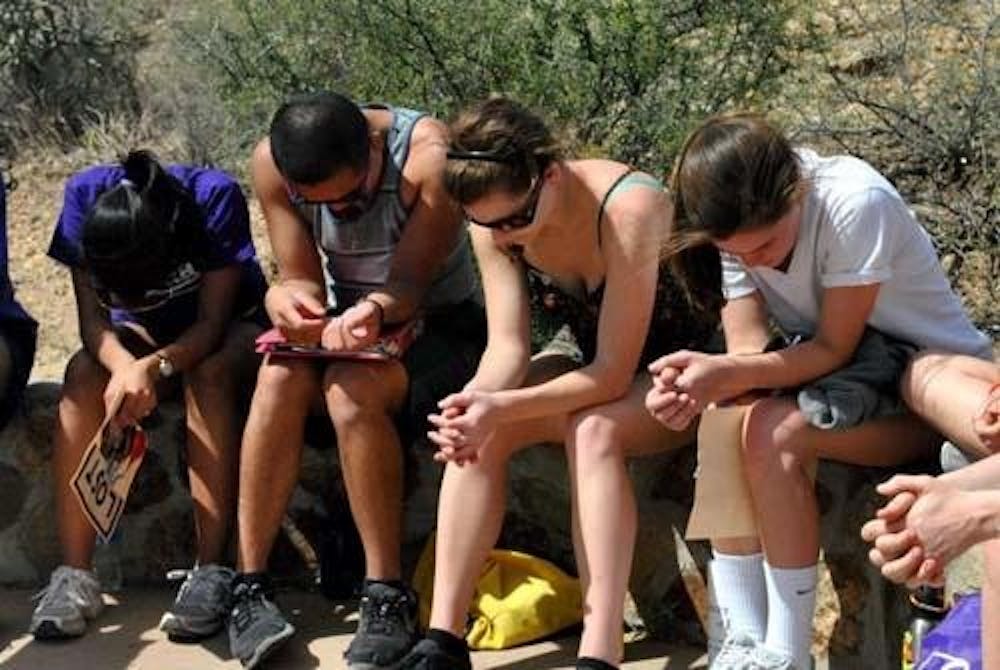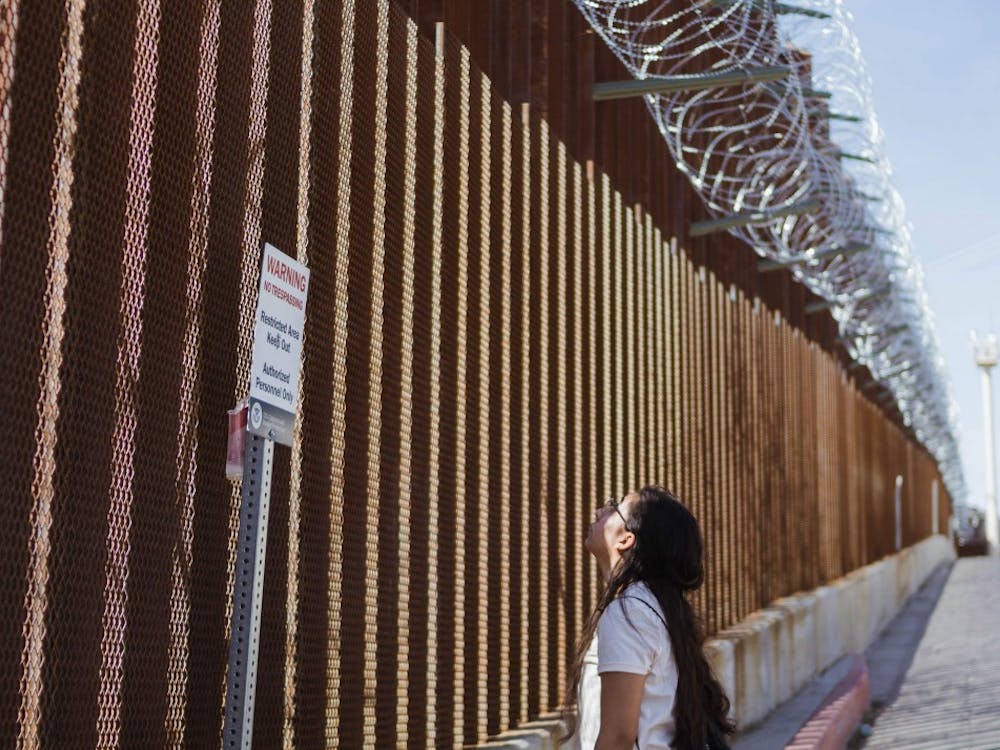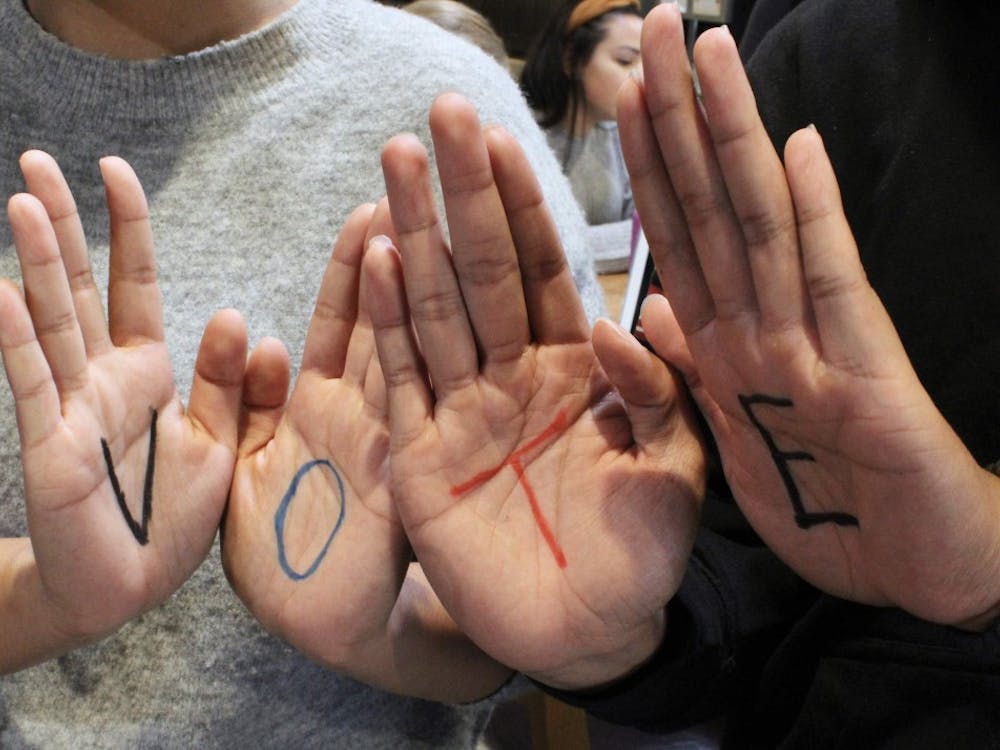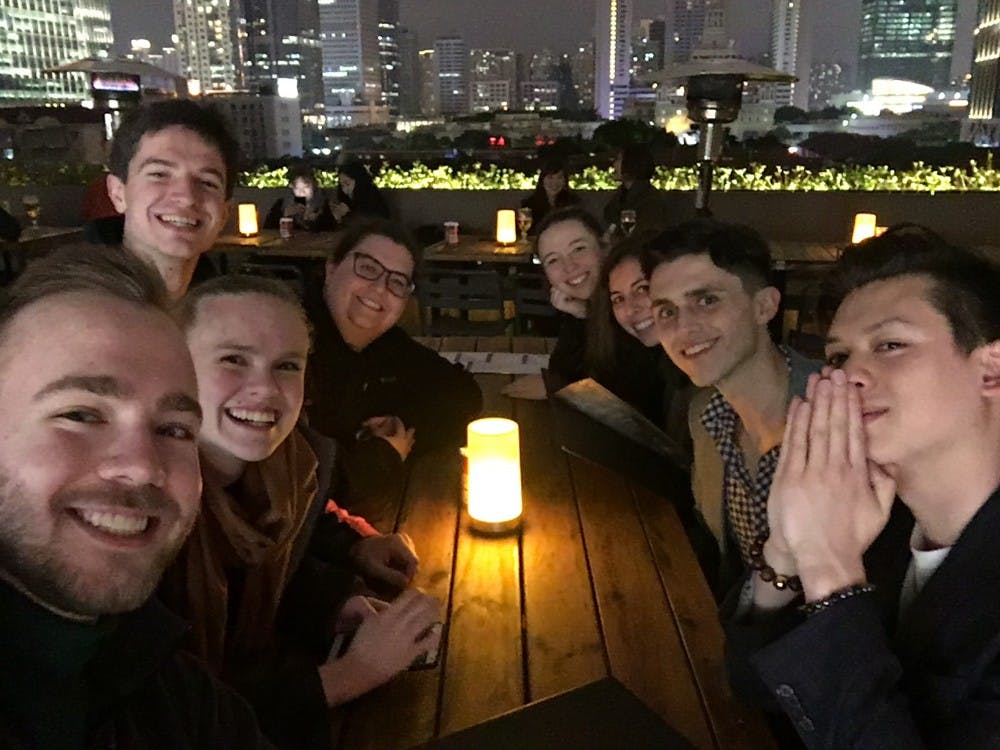The annual Border Plunge trip to Arizona showed students the harsh reality of illegal immigration

From left, freshman Eloiza Meza and sopohmores Vincent Dato-On, Cassandra Van Lier and Erin Flynn bow their heads for a final prayer after a desert hike in Tucscon, Ariz. on the last day of the trip (Photographs courtesy of Melissa Boles)
By Sarah Hansell, Staff Writer -- hansell14@up.edu
"Open your heart to the suffering of others, and you will construct a better world," Pat Ell, assistant director for leadership development, told us during our final reflection for the Border Immersion trip he accompanied us on.
We - 18 UP students and two adult accompaniers - had just finished our weeklong trip in Arizona, where we learned about immigration and human rights issues.
We visited places such as Operation Streamline (an expedited version of court where 70 undocumented immigrants are prosecuted each weekday), saw the U.S.-Mexico border, listened to presentations and had discussions with border enforcement and human rights groups alike.
By the end of the week, we had met many groups that inspired us with their compassion toward struggling undocumented immigrants and their passion for social justice.
Yet, we were overwhelmed by the lack of progress toward a more just system that does not strip undocumented immigrants of their human dignity.
Many of us felt hopeless.
Some of us felt hopeless after learning about ranchers and vigilante citizens who empty water containers left out for the immigrants crossing the desert who die every day from dehydration.
We felt hopeless after learning that women who cross the desert hoping to escape poverty and other dire situations often start taking birth control two to three months before they leave. This is because it is not a matter of if, but when and how often, they will be raped on their journey - either by their guide or by other men traveling with them.
We felt hopeless after learning that children who are born U.S. citizens are sometimes kept in the U.S. when their parents are deported. They are put in the foster care system, separated from their families, sometimes forever.
We felt hopeless after we saw the Mickey Mouse jacket of a four- or five-year-old boy that had been found in the desert - maybe because he and his family were running from Border Patrol, or were told by their guides to leave things behind or maybe because he had died. We won't ever know.
We felt hopeless after we met four undocumented immigrants who told us their stories and how hopeless they felt about their dreams and futures.
One boy in his early twenties told us his story of how he was born with developmental defects because his mother was doing drugs while she was pregnant with him. His grandmother couldn't afford medical care for him in Mexico, so she crossed the border with him on her back when he was just a baby.
She got him the care he needed, and he is now excelling in community college, having received a 4.0 GPA last term. He wanted to attend a university, but his grandmother couldn't afford it, and he doesn't qualify for federal aid because he is undocumented.
If he were to deport himself voluntarily, it would take him 10 years before he could apply for citizenship status in the U.S.
Meanwhile, he would be living in a country he has never known, indefinitely postponing, and perhaps forgoing, his goal of becoming an aerospace engineer.
But most of all, we felt hopeless when we went to Operation Streamline and heard the clinking of the chains shackled around the ankles, waists and wrists of 70 undocumented immigrants who were being prosecuted for the administrative violation of illegal entry.
Many of us felt, after all we had seen and learned, that these injustices would never change. Immigration reform has been pushed to the wayside by both parties in favor of strengthening our borders, while the root of the issue is disregarded.
However, we were reminded, on our last day under the Arizona sun, that there is hope.As long as people are fighting, as long as people still put water out in the desert, as long as a retired woman named Shura still illegally transports undocumented immigrants in need of medical aid, as long as there are still organizations who will do everything in their power to ensure immigrants are cared for, there is still hope for change.
After only a week together, the twenty of us had unreservedly opened our hearts to the suffering of others.
The suffering of those who die in the desert, of those who lose their children, of those who cannot make ends meet, of those who cannot achieve their dearest dreams - of Manuel, a migrant worker who helped lead our group and teach us these things, despite the fact that he struggles to feed his family.
It made us think differently.
The more people learn to think differently, the closer we come to creating a better world. As an immigration rights activist told us, "If we don't think differently, everything will be the same."








